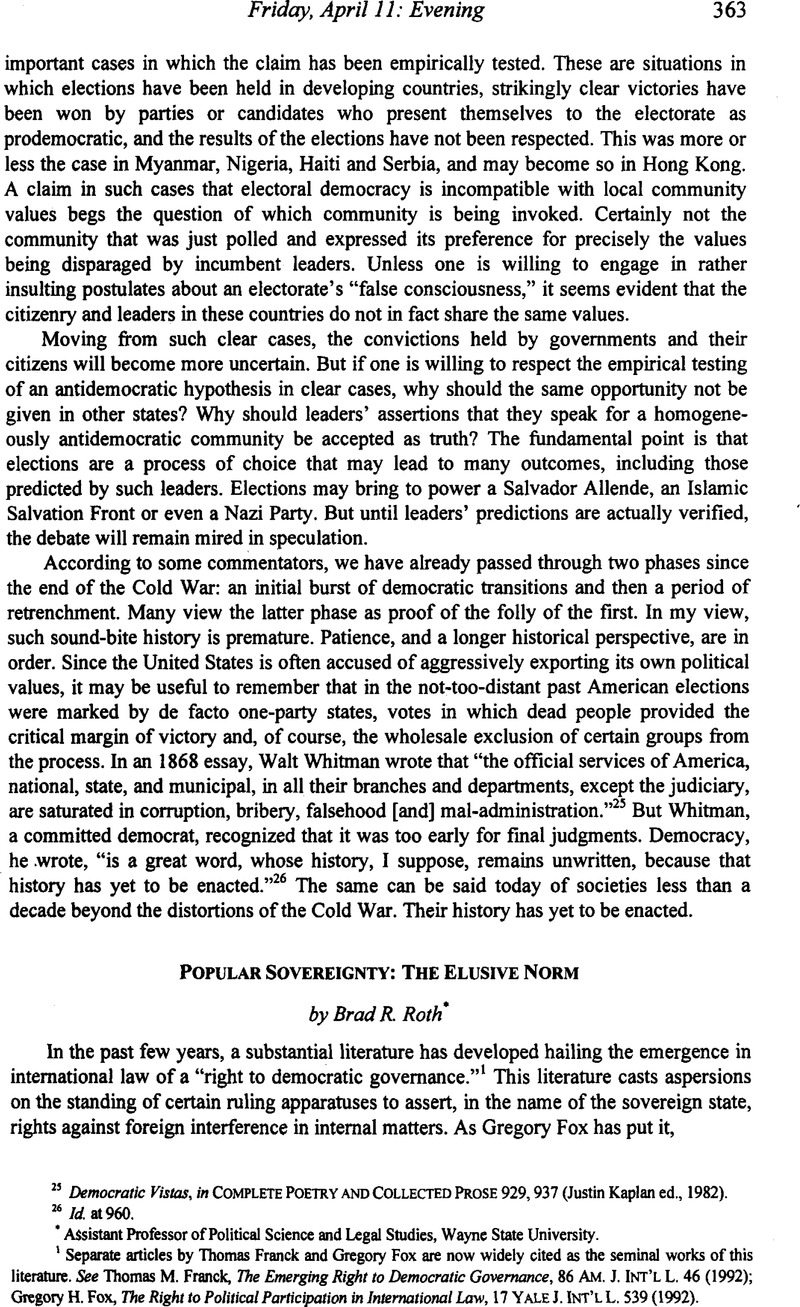Article contents
Popular Sovereignty: The Elusive Norm
Published online by Cambridge University Press: 28 February 2017
Abstract

- Type
- Implementing Democratization: What Role for International Organizations?
- Information
- Copyright
- Copyright © American Society of International Law 1997
References
1 Franck, Thomas, Democracy as a Human Right, in Human Rights: an Agenda for the Next Century 73, 75 (Henkin, Louis & Hargrove, John Lawrence eds., 1994)Google Scholar.
2 Fox, Gregory, Closing Comments, National Sovereignty Revisited: Perspectives on the Emerging Norm of Democracy in International Law , 86 Proc. Am. Soc’y Int’l L. 249, 270-71 (1992)Google Scholar.
3 See Fairness in International Law and Institutions, ch. 4 (1995) (largely reproducing Franck, Thomas M., The Emerging Right to Democratic Governance, 86 Am. J. Int’l L. 46 (1992))CrossRefGoogle Scholar.
4 Slaughter, Anne-Marie, International Law in a World of Liberal States, 6 Eur. J. Int’l L. 503, 508 (1995)CrossRefGoogle Scholar.
5 See, e.g., Thomas Franck, Fairness in International Law and Institutions 138 (1995). “The infant [global democratic] entitlement is sufficiently widely understood to be almost universally celebrated. It is welcomed from Malagache to Mongolia, in the streets, the universities and the legislatures . . . ” It is, he writes, a “cosmic, but unmysterius change, ” in which governments “no longer blinded by the totalitarian miasma” have come to recognize the advantages of democracy. Id. at 85-86.
6 Koskenniemi, Martu, “IntolerantDemocracies”: A Reaction, 37 Harv. Int’l L. J. 231, 234 (1996)Google Scholar
7 Salans, Hertzfeld & Heilbronn, London.
- 1
- Cited by


